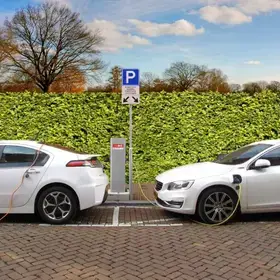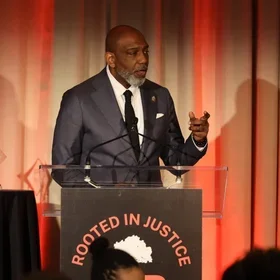By Steven Cohen, Ph.D., Director of the M.S. in Sustainability Management program, School of Professional Studies
We face an intense attack on Environmental, Social, and Governance (ESG) management and Diversity, Equity, and Inclusion (DEI) practices. While I consider these elements of effective management, others have termed them something they deride as “woke” management. Critiques of these practices are not entirely off the mark. Some ESG and DEI advocates are ideologues who see these practices as ends and lose concern for organizational effectiveness. I see these practices as means: methods that should be utilized to enhance organizational performance. I am far from alone in seeing these practices as tools of management. Many of the best-managed companies in the United States have integrated ESG and DEI into routine organizational management. To make this case, I thought it might be useful to provide some concrete examples of organizations that have integrated sustainability into their key performance indicators and have demonstrated improved performance as a result. This essay will discuss UPS, Land O’Lakes, and Marriott.
The low-hanging fruit of sustainability management has long been energy efficiency. An organization can save money if it uses less energy to complete a task it must perform. Ezgi Arslan provides an example from the United Parcel Service (UPS) and observes that:
“… UPS, which distributes goods across regions, transportation activities make up the bulk of GHG emissions. As a result, enhancing transportation efficiency is crucial for organizations like UPS to remain sustainable… UPS adopted an AI system called ORION which is a route optimizer that aims to minimize the number of turns during the delivery. Initiation began in 2012, and ORION saves UPS 10 million gallons of fuel per year, which means that in addition to the financial benefits, it decreases UPS’s carbon footprint by 100,000 metric tons per year, or the equivalent of removing more than 20,000 cars from the roads.”
For many years, Land O’Lakes has integrated sustainability practices into its business model. It has focused on cropland soil health, water conservation, efficient application of pesticides, as well as fertilizer and energy efficiency. These practices protect the environment but also enhance organizational efficiency and profit. Land O ‘Lakes is a cooperative comprised of thousands of farms, and sharing information and best practices is seen as a central management practice. According to a piece in the March 29, 2021, issue of Hoard’s Dairyman:
“In early 2021, Land O’Lakes launched a large-scale measurement project that will yield more than 250 data points per farm across more than 1,600 farms located all over the United States. This effort collects on-farm sustainability data from the largest number of farms from any single supplier in the U.S. dairy industry. The assessment measures actionable information on fuel, electricity and water usage, nutrient application, crop rotation and manure management.
To support this effort, Land O’Lakes has created a new Dairy 2025 Commitment team dedicated solely to the collection of on farm data, and helping develop measurable ways for its farmer-members to improve on-farm efficiency and further reduce their environmental footprint… Many Land O’Lakes dairy farmer-owners are already participating in significant sustainability initiatives, but this assessment is intended to provide a cooperative-wide understanding of members’ collective impact and set baselines for future goals.”
The hospitality industry is a growing business that is built on the phenomenon of mass travel. Tourism continues to grow globally and is a function of economic development. As nations like India and China develop their economies and increase their wealth, their citizens are using their growing wealth to explore the world they see on their smartphones. The largest hotel chain in the world is Marriott, with annual revenues of over $25 billion dollars in 2024. The company has set goals for water and energy efficiency, waste reduction, diversity, opportunity, and renewable energy use. It includes these goals in its corporate key performance indicators and has developed a sustainability metrics system called SPROUT. According to its 2024 sustainability report:
“To support Marriott’s targets, the company worked to develop property-level carbon reduction goals and focus areas, and properties can work to implement energy reduction projects, with full-service properties undergoing energy audits. Through Marriott’s Sustainable Practices and Resilient Operations Update Tracker, known as SPROUT, we also provide properties with additional sustainability actions and operational practices so they can work towards reducing their carbon footprint.”
A section of their annual sustainability report is entitled “embedding sustainability across Marriott,” where they discuss their efforts to reduce water and food waste. The report indicates that the company has achieved reductions in water and energy intensity and has recruited patrons in efforts to reduce resource use. Guests are given the option of forgoing daily linen replacements. All those little plastic shampoo bottles have been replaced by refillable bath supplies hung on the wall in showers. The company also measures its gender and racial diversity and has a goal of building awareness of human trafficking. While the Trump administration’s attack on DEI has been more intense than the attack on ESG, Marriott is persisting on both fronts. In an April 2025 issue of Fortune, Ashley Lutz reported about Marriott CEO Anthony Capuano’s response to the Trump Administration’s attack on DEI:
“While Marriott leaders have publicly said that they aspire to be a leader in the diversity, equity, and inclusion (DEI) space in recent years, President Donald Trump’s executive orders and policies against the initiatives threw their plans into uncertainty. The new policies could lead to changes in hiring, promotions, and training. Failure to comply could lead to cuts in federal funding to these private sector companies, although the legality of these changes is still being debated…After Trump announced sweeping changes to DEI in January, many executives and companies were left reeling. Capuano says he met with his executive leadership team in Bethesda, Md., where they decided to take a week to research and process before meeting again. The CEO then flew to Los Angeles for the Americas Lodging Investment Summit. While there, he was inundated with questions about Marriott’s approach to DEI in the future. Rather than stay silent, Capuano recalled many conversations with his mentor and former chairman Bill Marriott, and decided to speak. “The winds blow, but there are some fundamental truths for those 98 years,” Capuano said. “We welcome all to our hotels and we create opportunities for all—and fundamentally those will never change. The words might change, but that’s who we are as a company.” Capuano says he went back to his hotel that night hoping he had said the right thing. Capuano’s message was simple, but it didn’t go unnoticed by associates. He was overwhelmed by how his employees responded. “Within 24 hours, I had 40,000 emails from Marriott associates around the world, saying ‘thank you,’” he said. Many expressed appreciation to work for a company whose values aligned with their own.”
The idea that ESG management and DEI practices promote a form of reverse discrimination is a criticism that has some basis in reality. Measuring gender and racial diversity and seeking to improve an organization’s diversity has resulted in excesses in some cases. But in most cases, the organization has benefited from the contributions elicited from people with a diversity of lived experiences. In a brain-based economy, well-managed diversity leads to creativity and innovative approaches to organizational problem-solving. The goal of inclusiveness is to avoid practices that exclude people and ensure that all are welcomed. The goal of equity, in its best sense is about equal pay for equal work. It is about fairness that promotes excellence, not equality that promotes mediocrity. The goal of ESG is to promote mindful management that pays attention to the organization’s impact on its own workers, on its host community, and on the planet’s ecological well-being. Many of the world’s best-run companies have incorporated sustainability practices and measures into routine management. In addition to UPS, Land O’Lakes and Marriott, we could easily include companies like Walmart, Apple, Microsoft, Amazon, and Google.
Environmental, Social, and Governance management is a set of management principles that prioritize environmental issues, social issues, and corporate governance. In my view, this is simply a more sophisticated and mindful way of carefully managing an organization in a complex, crowded, and interconnected world. Sustainability metrics are the measures used to determine an organization’s success in moving toward sustainability goals—reducing the organization’s negative impacts while it pursues profit, market share, and return on equity (in the case of private, for-profit organizations). Our best-managed corporations have integrated these practices into their organizational routines. It is not an ideological preference but a management practice created by a changing planet and our changing culture. With the growth of travel and global communication, more people have experienced more parts of the world than ever before. Our distinct tribes are gradually merging. Friendships and relationships have become less homogeneous, and that fact is reflected in how we live and how we work. These cultural changes are the result of advances in travel and communications technology, and they cannot be stopped by politics, ideology, or authoritarianism.
Views and opinions expressed here are those of the authors, and do not necessarily reflect the official position of Columbia School of Professional Studies or Columbia University.
About the Program
The Columbia University M.S. in Sustainability Management program offered by the School of Professional Studies in partnership with the Climate School provides students cutting-edge policy and management tools they can use to help public and private organizations and governments address environmental impacts and risks, pollution control, and remediation to achieve sustainability. The program is customized for working professionals and is offered as both a full- and part-time course of study.



